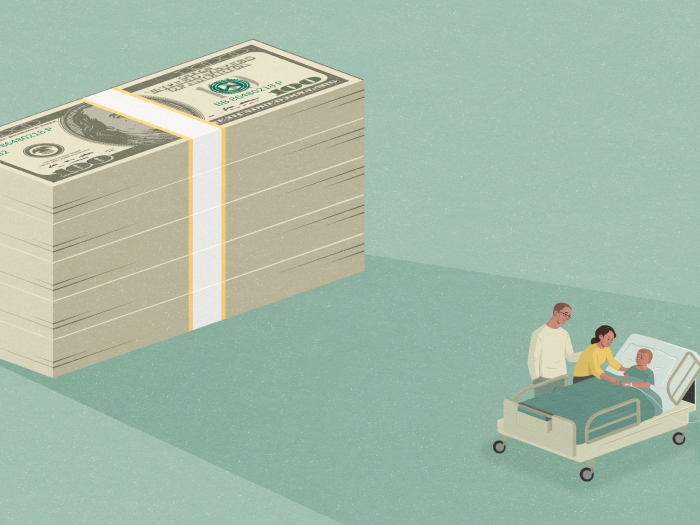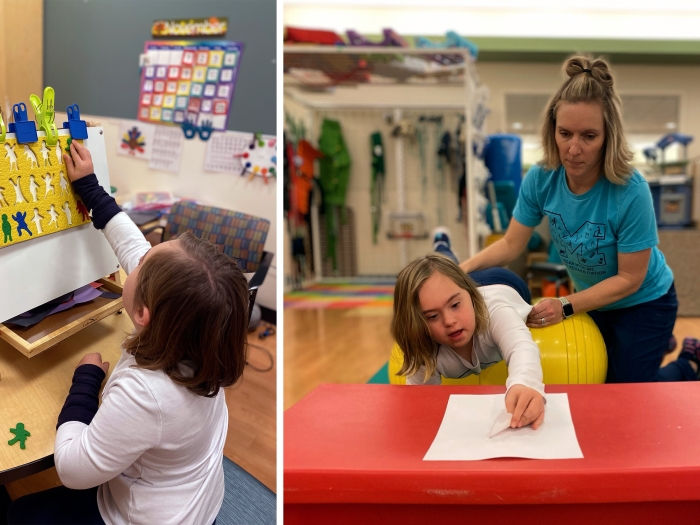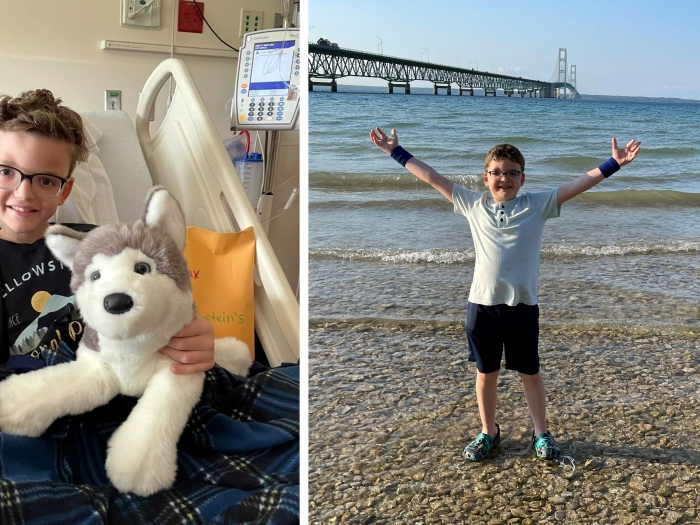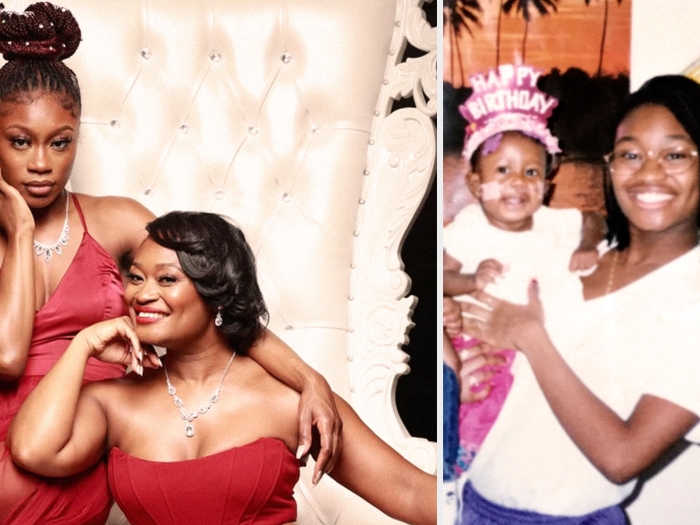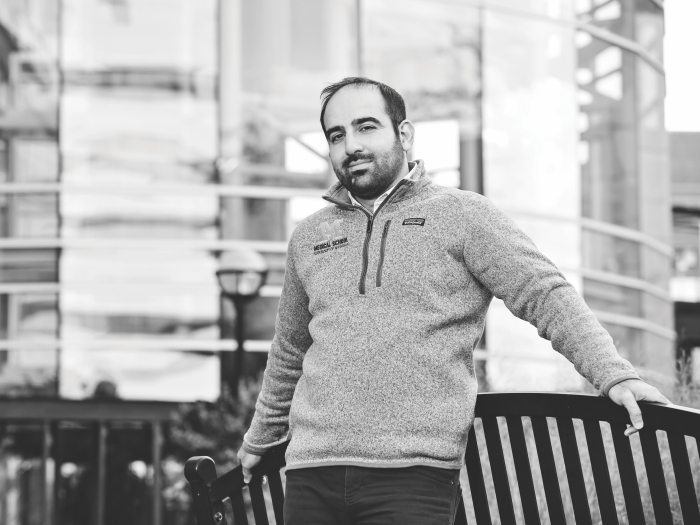Paralympian and world champion high-jumper Sam Grewe shares his incredible story.
2:02 PM
Author |
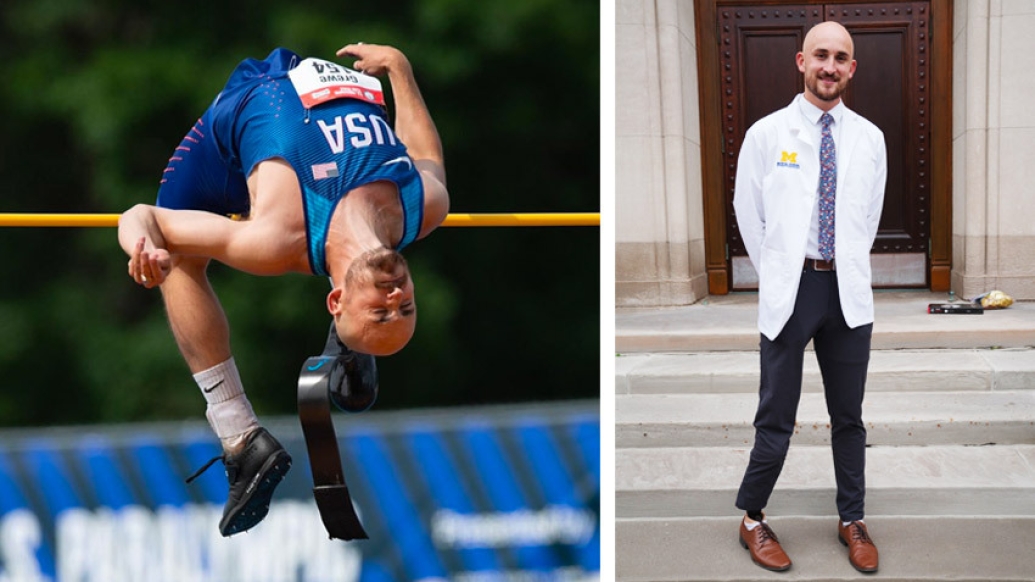
Grewe was recently interviewed about his experience as a gold medalist in Tokyo by University of Michigan Athletics. The segment will air on the Pregame Show of this weekend's Michigan-Washington radio broadcast on the Michigan Sports Network from LEARFIELD.
Sam Grewe, a first-year student at the University of Michigan Medical School, recently won his first gold medal at the Paralympics in Tokyo. He competed in the men's T63 high jump shortly after starting his path forward as an aspiring physician.
Grewe spoke to Michigan Health Lab about his inspirational story and how he overcame several obstacles to get where he is today. Read what he had to say about his own journey, as well as the advice he has for fellow medical students.
What led you to the Paralympics?
Grewe: I grew up in Middlebury, Indiana, which is a classic small town, and I was surrounded by a loving family and a great community. I was a year-round athlete and sports were always a big part of my life. They dictated everything I did.
In seventh grade, I had a sharp pain in my right knee. At first, we chalked it up to growing pains, but after a few weeks of playing basketball, a large bump appeared above my knee. On Christmas Eve of 2011, we found out that I had bone cancer.
The next two years of my life were primarily spent outside of school and included 21 sessions of chemotherapy. A few months in, my doctor told me that I needed to decide what my next steps would be.
I was given two options. They could essentially pick apart the tumor in my leg and insert artificial joints where it was removed, which would allow me to keep my leg but no longer play sports. Or I could opt to amputate above my knee, which meant that I could maybe return to the active lifestyle I knew and loved.
I decided to go with the amputation, which is called a rotationplasty, because even the slightest chance of being able to return to sports meant so much to me. With the artificial joints, I would be too fragile to continue being an athlete.
At such a young age, was it a challenge to adjust to your new normal?
Grewe: I entered freshman year of high school with an amputated leg – something I wasn't expecting at the time. I had to work hard to catch up with my peers on an educational level and recalibrate things so I could fully adjust, in general.
I was also in physical therapy and trying to learn my leg, so to speak, because this was all a new chapter for me. When I eventually became more comfortable with my leg, I tried out for my high school teams and really started loving sports again.
I discovered high jumping and started training with a coach, who was also a family friend. He's still my coach today.
From there, I tried out for the United States national team in 2015 and won the high jump T42 world title when I was 17. I represented Team USA at the Para Athletics in Doha, Qatar. While there, I won the men's high jump world title and got my first real taste of international competition.
I went on to join the University of Notre Dame track and field team and eventually went to the Rio Paralympics. I was so happy to win the silver medal there – my second year on the national team. In 2017, I won the world championship in London and in 2019, I won it in Dubai. Two years ago, I also set the world record for the high jump in Peru, something I'm still so grateful to have done. And throughout all these different competitions, I was still pursuing a pre-professional degree at Notre Dame.
How have you been able to balance being a Paralympian with being a medical student?
Grewe: It has been extremely challenging to balance it all. Honestly, the two years where I had to miss school during my amputation, and that adjustment phase I went through, really set the stage for me to succeed in my later stages of education.
I had to work hard to graduate in good standing with my peers, and I'll never forget that. So, in order for me to balance athletics with my education, I always maintained the perspective that I've been through worse.
I'm also incredibly grateful for all my professors at Notre Dame. They helped me remain accountable and set attainable goals. I acknowledged the way that I study and subsequently, the way that I learn. And I knew that if I was going to continue being a good student, I had to do things in a versatile and adaptable way. I would fit in studying on airplanes and other non-traditional spaces, for example.
It took a lot of adjustments and moving forward, I know that it will be even more challenging as a full-time medical student, but this is an important step in my journey and I'm so happy to be at the University of Michigan.
What inspired you to pursue medicine?
Grewe: My passion for medicine ultimately stems from my experience as a patient. When I was diagnosed with cancer, I spent two full years in the hospital. I experienced so much behind the scenes and could really see the amazing things that doctors do for their patients.
My oncologist was simply incredible. Her communication style was so effective and by interacting with her as a patient, I learned what it meant to be a good doctor.
When I finally left the hospital, I was equipped with some really valuable lessons and wanted to give back. A career in medicine seemed like the most logical response to those feelings. I knew it would be challenging, but becoming a doctor was my dream.
Someday, I'd love to help someone like myself. I know how underrepresented people with disabilities are, and I know – firsthand – that having a disability is not a death sentence. There are so many opportunities out there, but sometimes those opportunities aren't displayed as openly as they should be. I want to help change that.
What advice do you have for other aspiring doctors?
Grewe: Based on my own experiences, I think it's important to never let a bad day stop you from pursuing your dreams. Whether it's one bad day or in my case, a diagnosis, or a bad exam, there's always an opportunity to learn and grow.
And I think this goes beyond just our careers in medicine. Whatever it is that you're working towards is important. Every step of your journey is extremely important, even if it's hard to see that in the moment.
Another thing I always remind myself of is that you can't connect the dots looking forward. You can only connect them looking back. When I was diagnosed with cancer at 13, there was no way for me to make sense of it in a traditional way. I had so many unanswered questions and it would have been easy to feel like my life was falling apart.
But now I'm able to look back from where I am today and see how important those steps were in getting me to this point. I can confidently say that I wouldn't be here had I not gone through those trials and tribulations myself.

Explore a variety of healthcare news & stories by visiting the Health Lab home page for more articles.

Department of Communication at Michigan Medicine
Want top health & research news weekly? Sign up for Health Lab’s newsletters today!
